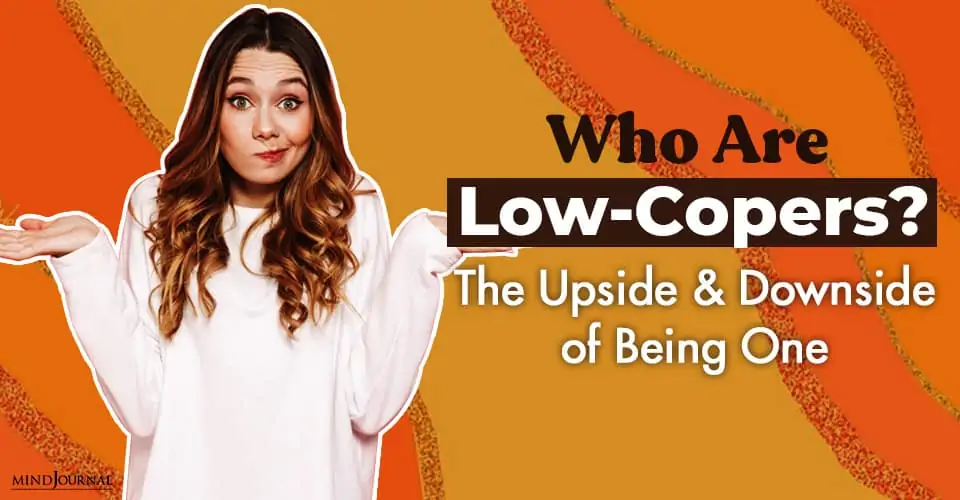Written By Christine B. L. Adams
Have you ever heard of or come across people who are also known as ‘low-copers’? Those people who don’t really do that well with any kind of responsibilities and refuse to deal with life’s problems?
In 40 years of practicing psychiatry, I have come across a group of people I call “low-copers.” Simply, these are people who do not manage well day-to-day. They deal with common situations and difficulties at a low or ineffectual level.
Dictionary.com defines coping as the ability “to face and deal with responsibilities, problems, or difficulties, especially successfully or in a calm or adequate manner.”
Accordingly, low-copers do not deal well with assuming responsibilities. They do not solve or even manage their own problems or life difficulties in effective ways. They are often in an uproar and become highly anxious when encountering something they need to handle and solve. They have difficulty running their households, getting to work and doing it well, and dealing with routine social life.
I do not include as low-copers people who are ill, whether emotionally, mentally, or physically, nor people with low intellectual or cognitive abilities. Low-coper refers to a personality style.
Examples Of Low-Copers
- A 10-year-old who won’t start work on a school project, whining, “It’s too hard,” when she’s received weeks of school instruction on how to do the project.
- A 16-year-old who doesn’t want to put dishes in the dishwasher, his newly assigned household chore, and throws a tantrum, yelling at his parents about how mean they are.
- A 22-year-old, beginning her first job, is reprimanded by her boss in the first week for consistently being late. She replies it’s just too difficult to get up any earlier.
- A 45-year-old severely obese man in a wheelchair being wheeled with difficulty down the skinny aisle of a plane. Getting him to his seat takes a while and delays the plane’s departure. Other passengers are frustrated. First-class passengers offer their larger seats upfront in an effort to get him seated so the plane can take off. The man refuses and still the attendants struggle to get the large man down the aisle in the wheelchair. Then, after 20 minutes, the man says, “Oh well, I’ll just walk.” He gets out of the wheelchair and walks to his seat.
- A 78-year-old woman, in good health, and able to drive, refuses to go the grocery store for herself, saying, “It’s too difficult to go up and down all those aisles to find the food I want.”
Related: 6 Traits Of An Emotionally Mature Person
Is There An Upside To Being A Low-Coper?
The upside for low-copers is they don’t have to exert themselves, solve problems, or face their responsibilities. Since they do not plan, strategize or solve, how do they negotiate life? They are extraordinarily skilled at getting other people to navigate life for them. They do this by whining, crying, yelling, and creating upset.
But is this coping style beneficial if they never do anything to tangle with problems?
The Downside Of Low-Coping
Low-copers fail to get the self-esteem boost and pride that comes from managing reasonably well with the encounters of life. As a result, they remain inert and feel inept in taking care of their own or anyone else’s welfare. Since they cannot strategize or plan for dealing with problems, make present or future plans, or feel confident about tackling responsibilities, their emotional health suffers.
Low-copers become easily overwhelmed and anxious when encountering most tasks or decisions. Many times their anxiety causes them to lash out and they become angry, demanding someone else take care of their situation. They can be disagreeable to be around and upset others with their demands.
References:
https://en.wikipedia.org/wiki/Coping
Please visit my website DoctorChristineAdams.com. You will find––
- Information about my book, Living on Automatic
- Free Reports
- Radio interviews and podcasts,
- My PsychologyToday.com articles
- More than 100 blog posts
- Book, Speaking and Teaching Endorsements
- How to contact me with questions and comments
Originally Appeared In Psychology Today









Leave a Reply
You must be logged in to post a comment.